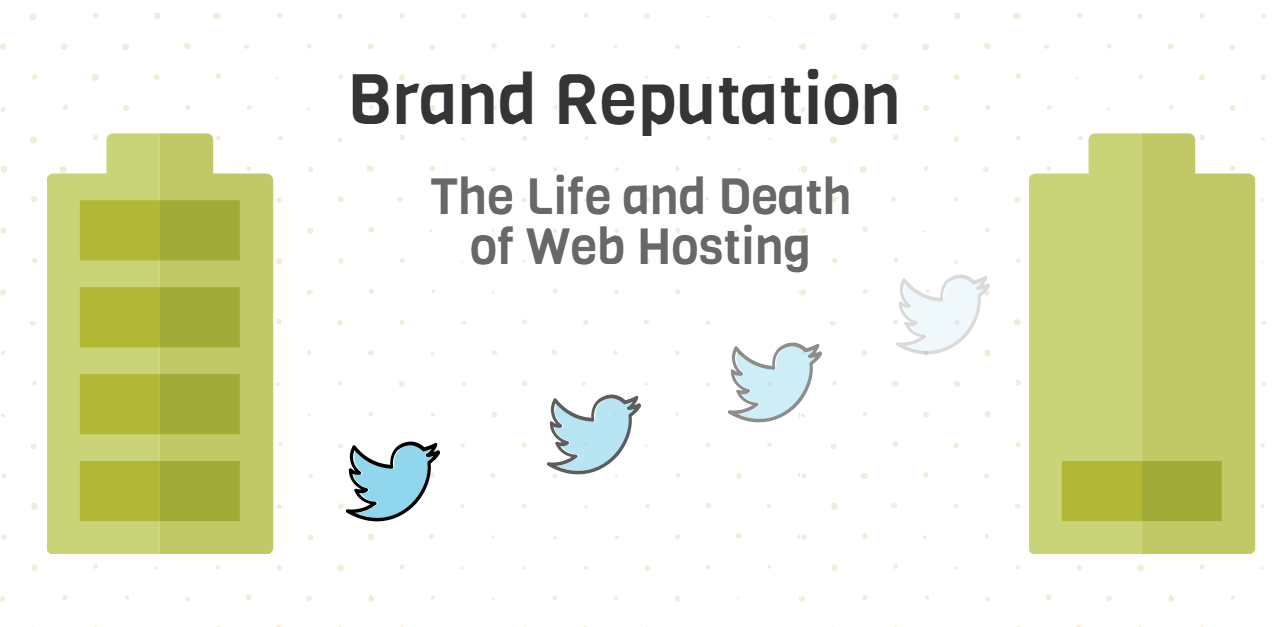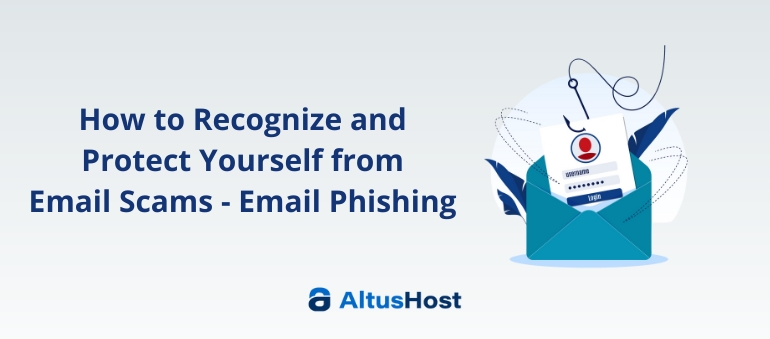In today’s world where almost every brand and entrepreneur has been given the opportunity to conduct business on a global level, and where hundreds and thousands of companies are going after the same customers – even the smallest of things can make or break your brand.
This is especially true in web hosting.
The devil is truly in the details here.
Web hosting is an overcrowded scene where a lot of companies offer similar services. Or so it seems like that at first glance.
If you offer web hosting services for a living, you already know how difficult it can be to attract and retain customers.
All sorts of different factors come into play here.
The biggest one of all – trust.
People don’t trust providers with their data.
Why? – Well, because the stakes are high. No one wants to expose themselves to any risk that could end up costing them their business. There isn’t a single soul in the world that would be ok with losing important data thanks to the incompetence of a certain hosting provider.
Even though a lot of the people from the industry tend to think of this as paranoid behavior, I kinda get it.
While there are a lot of web hosts that truly offer a reputable and upstanding service, there are also ones whose practices are poisoning the industry. Dated hardware, bad network, uneducated and unresponsive support – these are just some of the main traits of terrible hosting companies that harm their customers beyond repair.
Even though the choice of where to host your data is critical to the success of your website, a lot of people face extreme difficulties here. When choosing the right provider and package for their website, most inexperienced customers tend to get a bit confused. They aren’t really able to tell the difference between a good and bad hosting companies, so they turn to the Web looking for answers.
Even though this sort of behavior is something that should be applauded, when it comes to web hosting – things tend to get a bit tricky.
Why? – Well, because, you don’t really know if the content you’re reading is based on facts or fiction. You don’t know if a certain testimonial is written by an angry customer or a just another yes-man.
Confused?
Don’t be. Let me explain.
Trustworthy or Not – The Constant Battle
Owning a business these days demands crafting a serious and reliable online presence for yourself and your brand. It doesn’t really matter what you do or sell, today’s consumers turn to the Web to browse and shop for goods and services.
Before they even start to consider a certain provider as a possible home for their website, a lot of people first browse through tons and tons of content. They read all these reviews in order to figure out which hosting brand offers the best quality/price ratio for their needs. Next to that, they read to learn what their customers are saying. Before completing an order, people first want to know how good does a certain web host treat its customers, is their network stable, what does the brand do to ensure the safety of user data, etc.
That’s why a lot of companies invest in content these days. They do everything in their power to create and publish material that has the power to answer their shopper’s questions and influence them to make desired decisions.
It has become pretty clear to every single provider out there that he (or she) needs to do everything and anything in his power if he’s interested in staying active and relevant on this overly-populated and price competitive market.
There are no cutting corners here anymore. Every little thing you miss can come back to bite you on your behind. If you fail to make something work for you, you can rest assure that your competitors won’t. They will instantly recognize your weaknesses and turn them against you in order to push you out of the picture and win over your customers.
Despite how many links they create, or how many great posts they publish all over the Web – web hosts still need to closely monitor their user satisfaction and instantly act if things start to go south with any of their customers.
One Bad Review Can Cost You More Than You Think
Online reputation is everything in web hosting. It takes a lot of time and effort to build it, but it can also be ruined in a matter of seconds. It’s a tricky game that requires an open mind and a will to always go that extra mile. It doesn’t really matter if you spend days, weeks, months gathering great customer testimonials – one bad review can cost you a lot of new sales!
It doesn’t really matter what’s the story behind a certain review, bad reputation isn’t something that can just be left alone or ignored. It harms your business on all sorts of different levels:
1.It affects your ability to make more sales;
2. It drives the top talent away from your brand;
3. It ruins your market value;
4. It discredits the overall quality of your products and services.
The list goes on and on. That’s why it’s always important to immediately act on the problem at hand.
Reputation management is something that demands your constant attention. Like I said above – everything is in the details. Regardless of how good you treat your customers, you can still find yourself in situations where you have to read some terrible review about you and your business.
How come? – Well, because, reputation is a volatile thing that exists in the minds of others. Even though you do everything right, there’s still a chance that a certain client won’t be satisfied with your service.
When it comes to web hosting, a variety of different factors can affect your reputation, many of which have nothing to do with the way on how you run your business or treat your customers.
Regardless of the fact if the customer’s reasons for disliking your service are reasonable or not, he (or she) is still entitled to his (or her) opinion. He has the right to write anything he wants about your business online, and you cannot do really anything about it, except try to win him over.
So, how can we do that? How do people turn the negative into a positive? How to get people to once again see the value in doing business with you?
There are a lot of different practices web hosting brands use to fix their reputation problem, here are just a couple of ones that have proven to be good for us:
1. Show your Customers that You Care
Even though a lot of hosting companies deal with negative reviews and comments on daily basis, most of them don’t really try to talk to the people that publicly disliked their business. They don’t even try to reach out and discuss the problem at hand with their dissatisfied current or past user.
Instead of that, they get really annoyed and start basically a war with the person who wrote bad things about them on the Web.
This is a terrible thing to do.
Be sure to take a minute to really review what you’re going to say. Remember, your goal here isn’t really to defend yourself – you’re trying to resolve a certain problem.
I know this seems a bit odd, but all most people want is to be heard and acknowledged. If you address your troubled clients concerns in a respectable and professional way, show him (or her) that you care, throw in a gift for their troubles, and really do your best to make things right again – 7 out of 10 users will delete their previous comment and continue to host their business on your servers.
2. Create More Sites for Your Business, Own Related Domains
If you politely approach the person who wrote a bad review about your brand and he (or she) still won’t take it down, you need to take things to the next level. You need to create some other domains and websites for your business.
Why? – Well, because, creating a crop of new website with your brand name in their domain will help you overpopulate Google’s SERP with results that you want your current and potential customers to see when googling your business. This sort of thing will flush all those negative comments to the 2nd or 3rd page of SERP, which are, as practice has shown, rarely visited by searchers.
Naturally, don’t forget to create your Wikipedia page and accounts on all popular social media networks. Facebook, Twitter, LinkedIn, Google+, Pinterest, Vimeo, YouTube, Quora – all these sites are known to end up high in SERP almost immediately, so be sure to truly invest your time, money, and efforts into making them really work for you.
Also, be sure to claim your local profiles, local directory listings, and create your online business cards on such sites like about.me and dooid.me, because they rank high in Google’s eyes.
3. Blog Your Way to Success – Harness the Power of Google+ Authorship and Google Direct Connect
As I already said dozens of times on this site – blogging is important. Especially to small-medium sized businesses which are looking to make it big online. Apart from generating new links on your website, increasing your website traffic, conquering relevant keyword searches, improving your SEO, and showcasing your worth in front of your desired crowd – blogging can easily help you create leads and win over new customers.
How? – By building trust between you and your customers.
A lot of brands really invest in this department. Especially guest blogging.
Why? – Well, because guest blogging gives great writers the opportunity to showcase their knowledge on other party’s credible site, and thus – expand their network, win new leads, and build up their online reputation.
Blogs create a lot of links and that’s why they’re always rated really high in Google’s SERP. They can give your sales and ORM a really big boost if you leverage them right. That’s why I do my best to blog on all sorts of different domains.
If you, like me, want to rank a few blogs for your name, all you have to do is create them, and link them to your Google+ profile via Google authorship. When linking your domains together, make sure that your name is in the SEO title of the main blog. But, if you truly want to make this work for your company, if you truly want to leverage the power of blogging and bury all the unwanted reviews about your business way down in SERP – you should ask a few of your best employees to start blogs with your company name in their title.
4. SEO the Hell Out of Your Good Property
If you want something to rank. You need to build backlinks for it.
That’s SEO 101.
I do my best to find all sorts of different ways on how to interconnect all my good content and give people the opportunity to easily come into contact with my best work. The same goes for Google.
5. Do Interviews
Podcasts, webinars, citations, blog posts – agree to everything! Regardless of the format in which they make it online, interviews are great reputation builders. Especially if they’re hosted on high-authority domain sites or credible news sources.
Why? – Well, because, apart from the obvious SEO reasons – they’re all about you and your business. You’re the star of the show. Everything is in your and your interlocutor’s hands. You have the chance to represent your business in the best way possible on a site, online magazine, blog, or news portal that generates some serious traffic. Apart from that, interviews gather a certain number of readers who could easily become your new customers.
The part when a certain website owner or editor includes your name, position, and brand in a text, and publishes it on his site – that’s heaven for your business online. This type of content automatically ranks well in Google’s eyes.
Thank you for taking the time to read this post. If you have anything to ask or add about online reputation management – be sure to write what’s on your mind in the comments section below and I’ll do my best to get back to you as soon as I find the time!
That’s it for now,
See you soon again!
The author is highly qualified and writes blog posts weekly.











